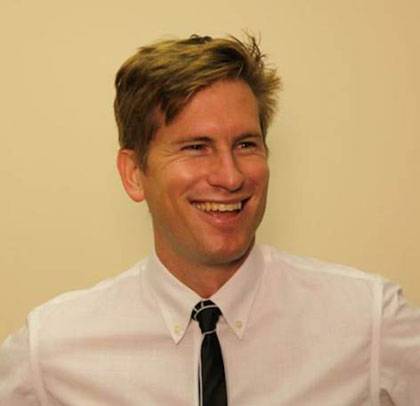
Fuqua Ph.D. student Troy Campbell had spent Nov. 6 deep in a data study session when he received a text message telling him his research had gone viral.
“You’re #3 on the Reddit homepage!” the message read. Campbell knew that Reddit, a popular news site where community members submit their favorite stories, would popularize his research on political differences on issues such as climate change and gun control. His study suggests people evaluate scientific evidence based on whether they view its policy implications as politically desirable. If they don't, then they tend to deny the problem exists.
"I open my phone to see my friends had all seen me on the Reddit homepage and were freaking out for me,” Campbell says.
Reddit generated about 47,000 of the more than 108,000 page views for the Duke Today story detailing the study that Campbell co-authored with Fuqua associate professor Aaron Kay. That’s the biggest readership for the news site since it went online in 2006, according to Duke Today editor Geoffrey Mock.
“Whenever stories hit Reddit, there's always a huge spike in views and online traffic,” says Duke social media fellow Danielle Nelson. “Their user database is huge and with those kind of numbers, there's the potential for our stories to go viral.”
Mainstream media coverage, plus Facebook and Twitter mentions, also boosted the story. The New York Times linked directly to the Duke Today story, and The Washington Post headlined the story as “Conservatives don't hate climate science. They hate the left's climate solutions.”
Campbell says he didn’t tweet the news himself because he wanted to stay calm and focused on his dissertation writing, now in high gear. “I got myself a celebratory frozen yogurt and just went back to work. Having your work and ideas online is stressful. I learned this from my very first blog on the Huffington Post. It’s best to ignore the comments and the Twitter game, because seeing negativity, even in a sea of positivity is painful. Especially for a young researcher.”
He let Kay monitor Twitter comments and give him a summary. It seemed that liberals were some of the most dismissive of the findings, which some found “too kind to conservatives.” But even while distancing himself from the comments (more than 1,400 on Reddit), he knew the study was catching fire when his mother told him she ran into his undergraduate adviser at a grocery store in Southern California and all he could talk about was the new study and its success on twitter.
“Getting press for your science gets more scientists to read it,” Campbell says, noting that so many important psychologists are on Twitter and have been retweeting his paper. “It’s an amazing feeling seeing the people you respect the most, the heroes you had when you were in your first psychology classes, sharing your work with the world.”
What has he learned from being an interview subject? The 27-year-old researcher says journalists want an exclusive quote and preferably one drawn from speculation as to the importance of the research. “I think it’s important that you share an exact message about your work and its limitations,” he says.
Reporters wanted to make sure they understood the findings in context, Campbell says. He adds he could tell they were excited about the topic. Since many of the writers were about his own age, including one with a PhD in psychology, he says he “felt an immediate friendship” in the conversations. After his first two interviews, he decided to prepare a package of articles that would lay out the context of the research.
“Every person at the top outlets genuinely wanted to get the story right and that was really good,” Campbell says. A four-minute live radio interview one Saturday with KCBS-San Francisco went well, he says, in part because he called the station ahead of time and got some feedback on what he hoped to say. He started out by telling a story to make the findings more intuitive.
He’s not done yet, either. He has more interviews lined up with writers at Wired and The New York Times, among others. And he is also in the process of extending the findings by looking at the flip side of solution aversion, which he terms “solution celebration.” He suspects we often exaggerate a problem in the world when we identify with the expertise that might be needed to solve it.